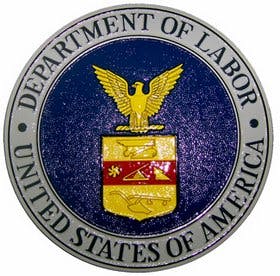By John E. Thompson
The U.S. Labor Department announced this week that it has entered into a cooperative alliance with the U.S. Internal Revenue Service and others aimed at ending “the business practice of misclassifying employees [as independent contractors] in order to avoid providing employment protections.”
As the IRS’s involvement might suggest, this collaboration has as much to do with enhancing the inflow of tax revenues and other sums to various governments as it does with “employee protections.”.
The arrangements’ other signatories include:
- Connecticut, Maryland, Massachusetts, Minnesota, Missouri, Utah, and Washington,
- State labor officials in Hawaii, Illinois, and Montana, and
- New York’s Attorney General.
The Labor Department says that these arrangements will permit it to “share information and coordinate law enforcement with” the participants.
None of this should be a surprise, arising as it does from a federal “Misclassification Initiative” that began to gather steam last year.
Nevertheless, every company or other organization with an operational model based even in part upon a contingent of independent contractors should anticipate renewed enforcement energy, activity, and assertiveness. Management should immediately evaluate whether there might be any vulnerability to a successful claim that those workers are instead employees, including for purposes of federal and state wage-hour laws.
What you should ask about independent contractors
And where the federal Fair Labor Standards Act is concerned, remember that its definition of “employee” has been characterized as being the broadest among all federal employment laws. In considering a worker’s FLSA status, think through the answers to questions like these:
- Are the individual’s services an integral part of the organization’s activities?
- Does the individual have any significant investment in facilities or equipment?
- Does the individual have an opportunity for profit and loss in a business sense?
- Does the individual exercise a businessperson’s initiative, judgment, or foresight?
- Is the relationship is permanent or indefinite, rather than for a determinable time?
- Does the individual have meaningful and predominant control over the work’s details?
- How much control does the organization retain over the work’s details?
Fisher & Phillips’ 2010 article published in the Bureau of National Affairs’ Daily Labor Report provides additional perspective on the independent-contractor question.
This was originally published on Fisher & Phillips’ Wage and Hour Laws blog.
